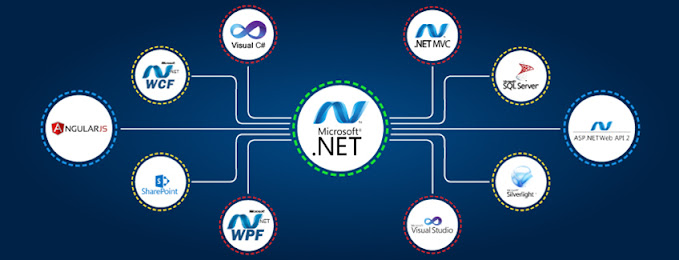What Are the Key Benefits of DevOps Services for Your Business
In today's fast-paced digital environment, DevOps services have become indispensable for businesses seeking to enhance operational efficiency, improve product quality, and accelerate time-to-market. By fostering a culture of collaboration between development and operations teams, DevOps streamlines workflows, reduces bottlenecks, and drives continuous improvement. Whether you are a startup or a large enterprise, adopting DevOps practices is crucial for staying ahead in the competitive market.
Accelerated Time-to-Market and Enhanced Agility
One of the most significant benefits of cloud DevOps services is the ability to deliver software faster without compromising on quality. By breaking down silos and fostering a collaborative culture, DevOps facilitates rapid development cycles, automated testing, and seamless deployment. This leads to faster release times and the ability to respond swiftly to changing market demands. Organizations can roll out updates, bug fixes, and new features quickly, giving them a competitive edge.
Continuous integration and continuous delivery (CI/CD) pipelines, a core part of DevOps implementation, ensure that code changes are automatically tested, validated, and deployed. This minimizes the time spent on manual tasks, reduces errors, and boosts productivity. With DevOps, businesses can achieve faster innovation cycles, delighting customers with timely updates and improvements.
Improved Collaboration and Communication
DevOps implementation emphasizes breaking down traditional silos between development, operations, and other teams within an organization. This collaboration fosters a culture of shared responsibility, transparency, and accountability. Development teams work closely with operations to understand the infrastructure and vice versa. As a result, both teams are aligned towards achieving common business goals.
The improved communication channels enabled by DevOps prevent misunderstandings, reduce conflicts, and ensure that issues are addressed quickly. Teams can work in harmony, resolving bugs, deploying features, and monitoring performance more effectively. This cross-departmental collaboration directly contributes to improved software reliability and customer satisfaction.
Increased Efficiency Through Automation
Automation is at the heart of DevOps services. From code integration and testing to deployment and infrastructure provisioning, automation eliminates repetitive tasks, reduces human error, and accelerates processes. Automated testing ensures that code changes do not introduce new defects, while automated deployment processes minimize downtime during releases.
Infrastructure as Code (IaC) allows for consistent and scalable infrastructure management, reducing manual configuration and enabling version control of infrastructure changes. This approach leads to improved scalability, cost efficiency, and a more reliable environment for software development and operations.
Enhanced Quality and Reliability of Software
DevOps implementation focuses on continuous testing, feedback, and improvement, resulting in high-quality software releases. Automated testing tools and CI/CD pipelines identify and resolve issues early in the development cycle. This proactive approach reduces the likelihood of defects reaching the production environment, ensuring stable and reliable releases.
Monitoring and logging tools further enhance reliability by providing real-time insights into application performance. DevOps teams can quickly detect and resolve issues, reducing downtime and enhancing the user experience. The ability to continuously monitor and gather data helps organizations anticipate potential problems and improve system resilience.
Cost Efficiency and Resource Optimization
By leveraging cloud DevOps services, businesses can optimize resource utilization and reduce operational costs. DevOps practices enable efficient use of infrastructure through elastic scaling, allowing companies to allocate resources based on demand. This flexibility minimizes wastage and ensures that businesses only pay for the resources they use.
Automation of manual processes also reduces the need for large teams, cutting labor costs and freeing up resources for more strategic tasks. Additionally, the ability to identify and fix issues early in the development process reduces the cost associated with rework and bug fixes, making DevOps a cost-effective approach to software delivery.
Seamless Cloud Integration and Scalability
Cloud DevOps services are tailored to support cloud-native applications, offering unmatched scalability and flexibility. By integrating DevOps with cloud platforms, businesses can easily scale their applications up or down based on demand. This flexibility ensures optimal performance during peak periods and cost savings during low-demand periods.
Cloud platforms offer a range of DevOps tools and services that simplify infrastructure management, automate deployments, and enhance security. The seamless integration between DevOps and cloud environments ensures that businesses can innovate faster, deploy new features effortlessly, and maintain high availability.
Continuous Monitoring and Proactive Issue Resolution
DevOps practices emphasize continuous monitoring of applications and infrastructure to ensure optimal performance. Monitoring tools provide real-time data on system health, user behavior, and potential bottlenecks. By analyzing this data, DevOps teams can proactively identify and resolve issues before they impact end users.
The continuous feedback loop enabled by monitoring tools allows businesses to make data-driven decisions, improve application performance, and enhance user experiences. This proactive approach reduces downtime, minimizes disruptions, and fosters customer trust and loyalty.
Security and Compliance Integration
Incorporating security practices into the DevOps workflow, commonly known as DevSecOps, ensures that security is not an afterthought but a core part of the development process. Automated security testing, vulnerability scanning, and compliance checks are integrated into the CI/CD pipelines, ensuring that applications are secure and compliant from the outset.
By embedding security into every stage of the software development lifecycle, businesses can minimize risks, protect sensitive data, and adhere to regulatory requirements. DevSecOps practices ensure a holistic approach to security, reducing the risk of data breaches and compliance violations.
In Conclusion
DevOps services offer a comprehensive approach to software development and operations, driving faster innovation, improved collaboration, enhanced efficiency, and superior software quality. By embracing DevOps practices, businesses can stay agile, reduce costs, and deliver exceptional value to their customers.


.png)
Comments
Post a Comment